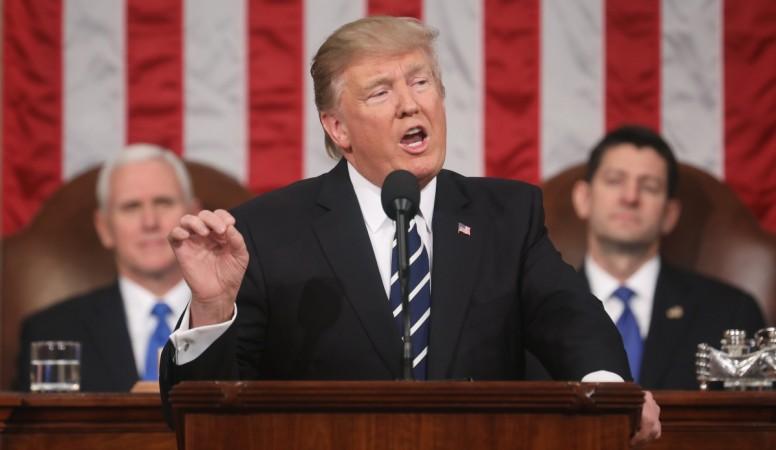
United States President Donald Trump changed his stance on the North Atlantic Treaty Organization (NATO) on Wednesday, stating that he fully supports the alliance, and that he no longer considers it "obsolete".
"I complained about that a long time ago, and they made a change — and now they do fight terrorism," Trump said. "I said it was obsolete. It's no longer obsolete."
Trump's statement on NATO was a sharp reversal of his take on the alliance during the presidential campaign last year and the first months of his presidency. The Republican had previously consistently criticised the military alliance and its importance to the allies of the US.
Trump had said that the NATO was outdated and that it was costing the US a lot of money. He had also suggested replacing NATO with an alternative organisation that mainly focuses on counter-terrorism.
Trump, in January, had given a statement in an interview with the Times of London and Germany's Bild saying that NATO is "obsolete because it wasn't taking care of terror" and that critics of his comments have "started saying Trump is right," The Washington Post reported.
The US president, during a joint press conference with NATO Secretary General Jens Stoltenberg, on Wednesday said that his comments prompted the military alliance to make some changes, and that his concerns were now satisfied after the alterations. It is not yet clear what changes Trump was referring to.
Stoltenberg said that Trump was "right" about noting the changes.
"We have established a new division for intelligence, which enhances our ability to fight terrorism, and working together in the alliance to fight terrorism even an even more effective way," Stoltenberg said. "But we agreed today, you and I, that NATO can and must do more in the global fight against terrorism."
Reiterating his statements on other member countries paying for the organisation, Trump, during the conference, called on NATO members to "meet their financial obligations and pay what they owe." NATO member countries are expected to contribute 2 percent of their GDP to defence.

















